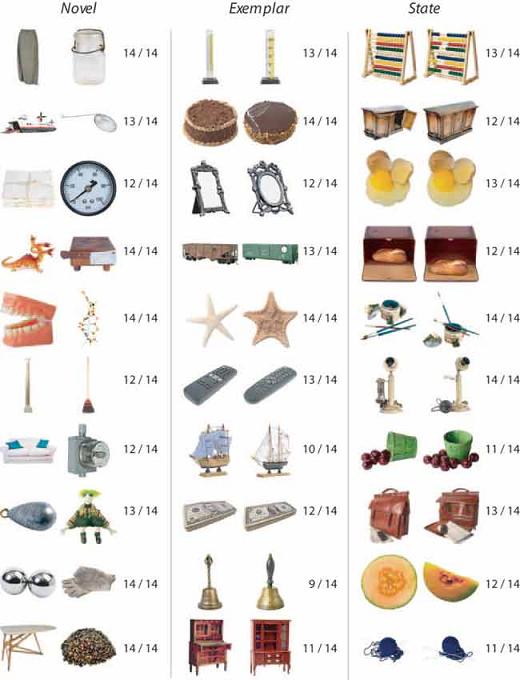September 10, 2008
Scientists Find Evidence For The Unconscious

Not exactly, but follow along with me.
14 subjects were shown 3000 pictures, 3 seconds each. Then, they were shown pairs of objects-- one was the previously seen, the other never seen-- and they had to pick out which one they saw. (pdf of article here.)
The pairs were of three types: paired with something completely different; paired with something of the same type; and paired with an altered version of the same picture.

3000 images-- viewed once-- over the course of two to three hours-- and the subjects were able to correctly pick out the previously seen image 87-92% of the time. Absolutely wow.
Granted, this is a paired identification, and not an uncued recall ("list everything you saw.") But what it suggests is that nearly everything you see is in your brain, somehow/where, at least for a while.
If it's in there, then your brain is making associations with it.
If it is making associations, then its presence is affecting the how/when/why of the "recollection" of something else, just as the how/when/why of the recollection of that object is influenced by what came before it.
Example: are you storing it as a picture (the basket of grapes) or as an action ("object tipped over")? If the latter, perhaps it would have been harder to differentiate it from an overturned basket of bananas then an upright basket of grapes. And that is influenced by whether your life is one of grapes or of overturned stuff.
So that random guy in the red shirt you didn't notice from last week when you were eating ice cream is in your brain, and he's being used to make an association to something else. So, for example, Manchurian Candidate style, when you next see a red shirt, you get hungry.
You don't realize the red shirt made you hungry, either. You just feel hungry "for no reason."
Or it could go the other way-- maybe you suddenly like guys in red. Or maybe you hate them. etc.
Perhaps that's why free association seems so powerful. The trick is to bring unconscious associations into consciousness. That way, you get to choose whether or how it affects you.
Everything you experience-- life, books, images, dreams, sounds, and things you did not even notice you experienced-- becomes part of you, and it matters. We make fun of the white kid who is "pretending" to be all gangsta-- "he's a suburban kid from Irvine!"-- but that "fake" experience actually matters. Certainly less than a kid who lead a real gangsta life, but more than someone who never imagined living it.
IAnd it probably extends beyond identity to ability, and it speaks to the power of visualization. Who's more accurate with an M16 rifle: the 19 year old who's watched action movies his whole life, but never touched a gun or rifle; or the 19 year old who's watched no movies and never held a gun?
Everything that happens matters; we just don't know how.
You can't control a red shirted guy passing by you; but you can control, say, what you watch on TV, and how; who you talk to, what you talk about, how you do or do not decide to pay parking tickets.
It's very hard to understand why we think things, why we do things, why we are who we are. Root causes are never fully understood, probably are outright misleading the rest of the time. But what you do have control over, every moment, isn't the why, but the what.
(BTW, if seeing an image in your mind can affect you, imagine what a fake image can do.)
14 Comments